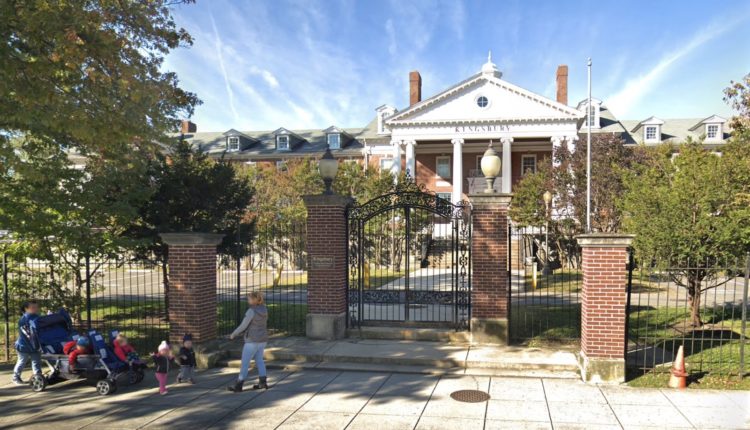
It’s often said that failing to prepare is preparing to fail. Unfortunately, that can all too often be said of DC’s education leaders — and the latest instance, occurring right now, has extreme consequences for the city’s most vulnerable students.
This spring, two nonpublic special education schools in DC — the Kingsbury Center and Episcopal Center for Children — announced they would be closing at the end of the school year after many decades of serving local students with disabilities. Around 40 students at each school will need new placements.

Meanwhile, the DC Office of the State Superintendent of Education (OSSE) decided to pull its certification for DC placements at a Maryland special education school, Harbour School-Annapolis, due to disagreement over implementation of DC graduation requirements. As a result, officials are in the process of finding new placements for approximately 14 DC students.
And just three weeks ago, Monument Academy Public Charter School decided to close, displacing approximately 100 students, including about 60 with disabilities and complex education needs. On June 14, the Friendship Education Foundation — the philanthropic arm of Friendship Public Charter School — proposed to operate the school for the coming school year, but it’s not clear whether the Monument board will accept the offer. Meanwhile, only 11 students have lined up another school, according to The Washington Post. Private education foundations that step in to support schools should be praised for their efforts; however, it is not a sign of a functioning/appropriate education system when this has to occur regularly.
Adding to the changes ahead are several previously announced public charter school closings: City Arts and Prep, Democracy Prep, and Cesar Chavez Schools’ Capitol Hill and Chavez Prep campuses at the end of the 2018-19 school year; and then National Collegiate Prep at the end of the 2019-20 school year.
The cumulative impact of these closures is particularly acute for students with disabilities and their families. Assuming Monument Academy isn’t able to stay open, DC is losing well over 100 seats in programs for students with significant disabilities who need specialized schools — and even more spots in programs open to students with and without disabilities.
Closing schools isn’t a solution; it’s a way to push the problem down the road. The children in those schools are still there — still in need of the same services and supports — but where will they go in the fall?
In DC, 38 percent of students with disabilities have specific learning disabilities, and 41 percent have disabilities that manifest themselves in significant behaviors. These include autism spectrum disorders; emotional disabilities; speech and language impairments; and other health impairments, such as ADD and ADHD.
Though it was encouraging that the DC Public Charter School Board (PCSB) just approved five new charter schools to open in 2020-21, none of these is focused on students with disabilities.
It is not OK for our city to leave our most vulnerable students — those who have extensive learning and social/emotional needs — with far fewer options.
It is not OK for the PCSB and OSSE to just look at each other and say it is not their problem to make sure these children are served.
It is not OK for the city’s education leaders to shrug at this and point to a lack of regulation — and then turn around and object whenever the DC Council attempts to impose regulations.
It is not OK for the adults in the room to ignore what every special education parent, teacher and advocate with experience in the field will tell you: Special education done appropriately is neither cheap nor easy, and happens only if it’s made a priority. So why was special education left off the agenda when the deputy mayor for education convened the DC Cross-Sector Collaboration Task Force in 2018? Why do we rarely talk about the abysmal achievement and graduation rate for students with disabilities?
According to the DC School Report Card, 16 percent of the 97,503 students in DC’s traditional public schools and public charter schools are students with disabilities.
PARCC scores for these students are ridiculously depressing: a 7.9 percent proficiency rate in English language arts and a 9 percent proficiency rate in math. Just 47 percent of our students with disabilities graduate within four years.
There is no justification for this woeful underachievement. The overwhelming majority of students with disabilities can and should achieve on grade level — as long as their schools follow the law. Of particular note, DC graduation requirements are more stringent than those in the surrounding counties and fail to strike the right balance between accessibility and achievement, especially for students with disabilities. In plain English: We are setting up our students to fail and not giving them any support.
Ask any informed education advocate in DC, and they will tell you that most public school operators in DC, regardless of sector, fail to meet the requirements of federal special education law. Simply put, DC education agencies — whether it’s the deputy mayor for education, DCPS, PCSB or OSSE — do not provide the infrastructure and policies necessary for schools to serve students with disabilities well.
When schools such as Monument Public Charter School, Episcopal Children’s Center and Kingsbury are forced to close because it is cost-prohibitive to operate in DC, education leaders just shrug as if they had no role in the closures. That’s how we’ve ended up where we are now, with vulnerable kids who literally have nowhere to go. The affected families, who span the whole city, are struggling to find stable, effective learning environments for their children who deserve consistency, quality teaching and effective supports and services — all of which are required under the federal Individuals with Disabilities Education Act.
DC has been in the “needs assistance” or “needs intervention” category for special education since the U.S. Department of Education began rating states in response to a 2004 law. But we have not seen the necessary reforms, and the recent spate of school closings is not improving the situation. Instead, our nonpublic schools and charter schools face a new level of significant and seemingly redundant paperwork requirements. Inconsistent expectations and regulations are just one area of pain for schools serving students with disabilities.
We need education leaders willing to take a flexible, compassionate approach that’s based on the knowledge that all students can learn. We need leaders who will put students above ideology and who will focus on the needs of students, not sectors. We need leaders who will hold our schools to high standards and then support them so that they can meet those goals. We need real investment in special education, not counterproductive policies that lead schools to shut their doors.
Molly Whalen is a DC resident, a parent of two teenagers with disabilities, and a longtime parent special education advocate. She is the executive director of the DC Association for Special Education (DCASE), which is an alliance of nonpublic and charter special education schools working toward fulfilling the promise of a quality education for all children with disabilities through advocacy, special education resources, and strong partnerships. The views expressed are her own and not necessarily those of DCASE.
This post has been updated to reflect that for fiscal year 2020 the U.S. Department of Education has upgraded DC to the “needs assistance” category for meeting the requirements of the federal Individuals with Disabilities Education Act.
About commentaries
The DC Line welcomes commentaries representing various viewpoints on local issues of concern, but the opinions expressed do not represent those of The DC Line. Submissions of up to 850 words may be sent to editor Chris Kain at chriskain@thedcline.org.


Comments are closed.